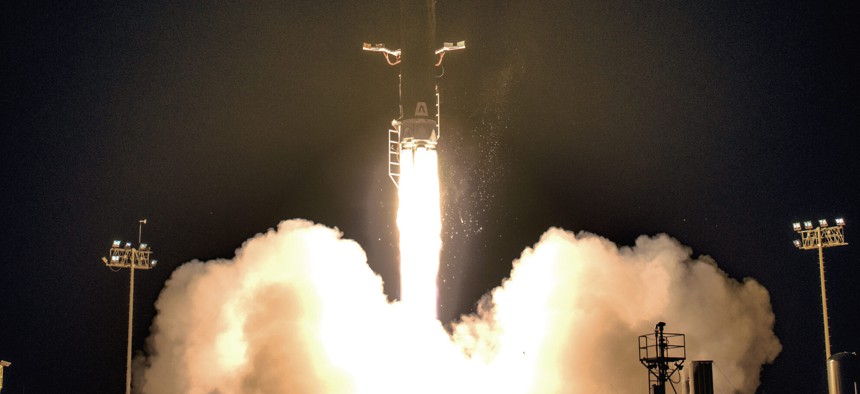The national security imperative of commercial space

A Firefly Alpha rocket launches on Sept. 14 with a Space Force satellite on board, just 27 hours after it was ordered. Courtsey of Firefly
A 27-hour turnaround to launch a satellite is a powerful reminder of how a commercial space industry is critical to U.S. national security.
I read an article over the weekend about a company called Firefly Aerospace that launched a satellite within 27 hours of receiving an order for the launch Space Force.
It was a remarkable feat considering that the previous fastest record was 21 days, according to the Washington Post article.
Firefly loaded onto its Alpha Rocket a VICTUS NOX satellite built by Boeing subsidiary Millennium Space Systems onto its Alpha rocket.
Firefly updated the rocket’s trajectory and guidance software and got the rocket on the launch pad within 24 hours, but had to wait three more hours to put the satellite in the right orbit.
“Our combined commercial and government team executed the mission with record speed, agility, and flexibility, adding a critical capability to address national security needs,” Firefly CEO Bill Weber said in a statement to the Post.
That quote and some observations in the article got me thinking.
Meeting that 24-hour goal couldn’t happen without a vibrant and growing commercial space business that essentially allows the government to order a launch on demand. The Defense Advanced Research Projects Agency tried and failed in 2018, as the Post article points out.
But the commercial space industry has matured greatly since then.
The Space Force satellite that launched Sept. 14 has a national security mission. And space is now a warfighting domain alongside land, sea, air and cyber.
My first thought was that commercial space and a warfighting domain show a paradox.
Shouldn’t national security be squarely in the realm of traditional government operations? Shouldn’t the government control how and when national security satellites are launched?
But I realized that is a naive way of thinking for two reasons.
First, a lot depends on space-based communications. It is an economic enabler when you consider the commercial data that needs to move around the globe. It is a national security imperative to protect our space-based infrastructure.
That’s before you get to the military operations that rely on space-based communications and data collection.
We don’t want adversaries disrupting either the commercial or military infrastructure, or collecting intelligence off that infrastructure.
Second, given the national security implications of space, speed and flexibility is of utmost importance. You can’t get speed and flexibility without a commercial space industry.
This launch by Firefly proves that. When you consider how aggressive our near peer adversaries are, a healthy and vibrant commercial space industry is also a national security imperative.
Stay tuned. There is going to be more to come on this, including from us:
We are planning a Washington Technology Power Breakfast in January on doing business with Space Force.

